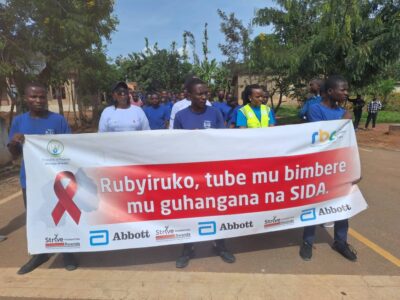Rwanda ranks among the top five countries globally in eliminating AIDS according to the United Nations Organization for AIDS (UNAIDS) report released in July 2023. The report highlights Rwanda as one of the first five nations to successfully achieve the 95-95-95 targets aimed at eradicating the AIDS virus. UNAIDS urges countries worldwide to eliminate HIV/AIDS by 2030, with a specific focus on reaching 95% of the epidemic by 2025.
The 95-95-95 objectives established by UNAIDS include ensuring that 95% of individuals living with HIV are aware of their status, 95% of them receive antiretroviral medication, and at least 95% of those on medication exhibit no detectable virus in their blood due to proper medication adherence. UNAIDS reports that Botswana, Eswatini, Rwanda, the United Republic of Tanzania, and Zimbabwe have successfully met the 95-95-95 targets.
Commending the efforts of countries in Eastern and Southern Africa in combating AIDS, UNAIDS emphasizes the importance of testing, treatment access, and prevention efforts, particularly among pregnant and lactating women to prevent mother-to-child transmission. AIDS Healthcare (AHF), the American International Organization dedicated to fighting AIDS, notes the absence of AIDS patients in Rwanda due to the timely provision of free medication, ensuring viral suppression and reduced transmission risk. Narcisse Nteziryayo, head of AHF’s HIV prevention efforts, emphasizes Rwanda’s effective medication distribution system, reducing AIDS-related symptoms and transmission risks.
However, challenges persist, particularly concerning HIV transmission among certain groups. Efforts are underway to encourage expectant mothers to undergo comprehensive testing, including HIV screening, to prevent mother-to-child transmission during pregnancy, delivery, and breastfeeding. Teenage pregnancies present additional complexities, with social stigmas and lack of support affecting young mothers. Nishimwe Benita, a teenage mother, highlights the barriers faced in accessing HIV testing and healthcare services without spousal involvement or documentation, leading to potential risks for the mother and child.
In Nyagatare District, measures have been implemented to prevent pregnant girls from concealing their pregnancies, reducing the risk of HIV transmission during childbirth. Dr. Basile Ikuzo, Head of the AIDS department at Rwanda Health Center (RBC), anticipates surpassing the 95% target, reflecting Rwanda’s commitment to combatting HIV/AIDS effectively.
